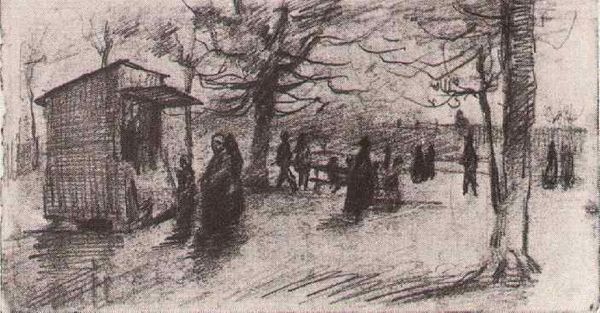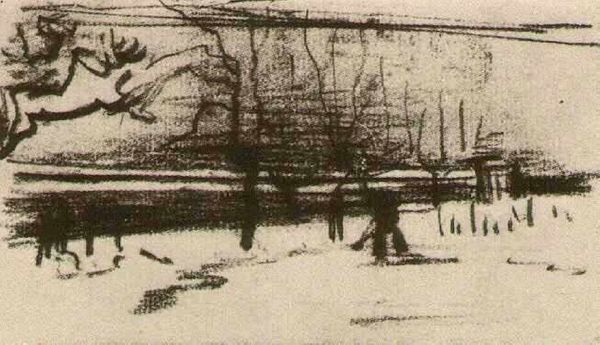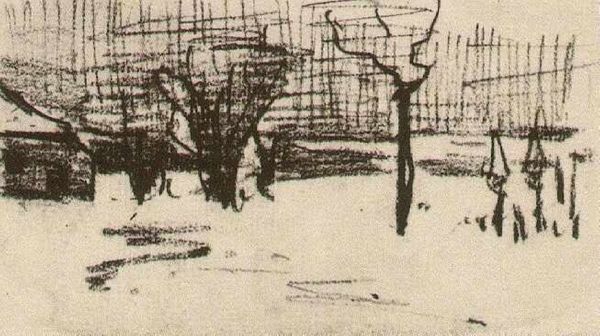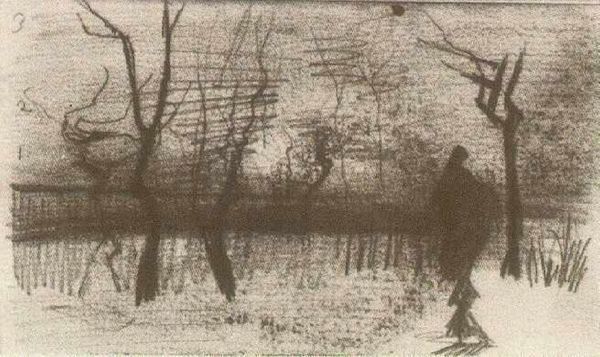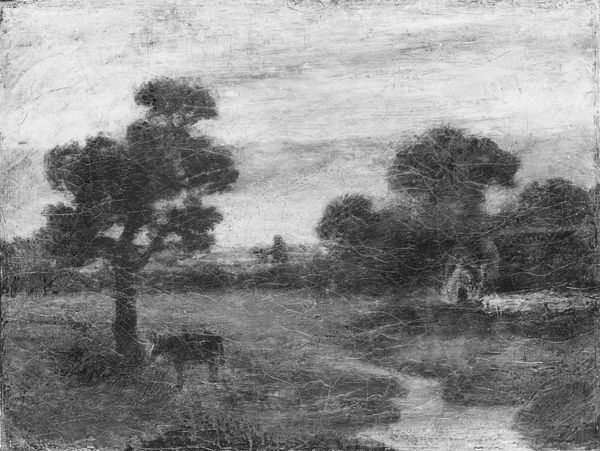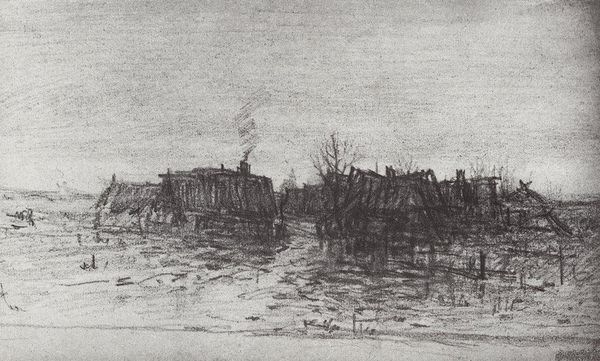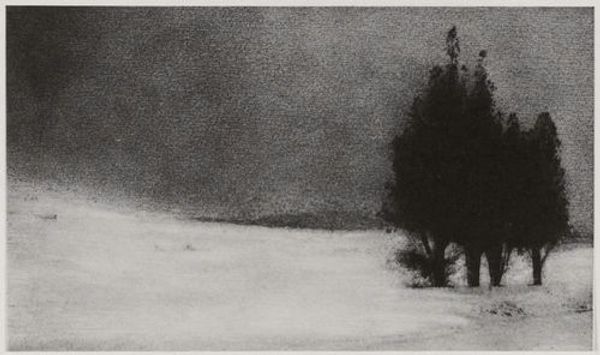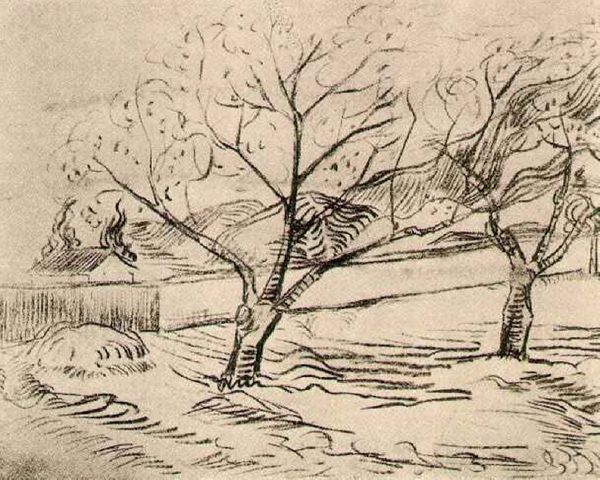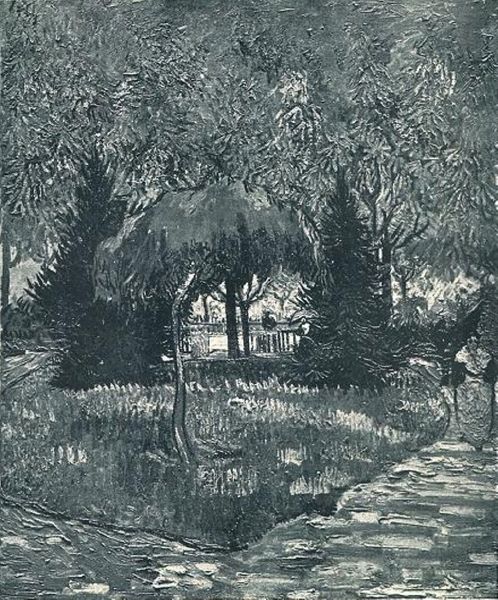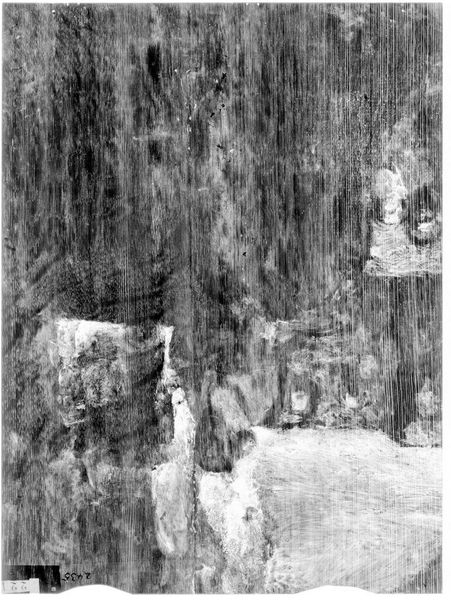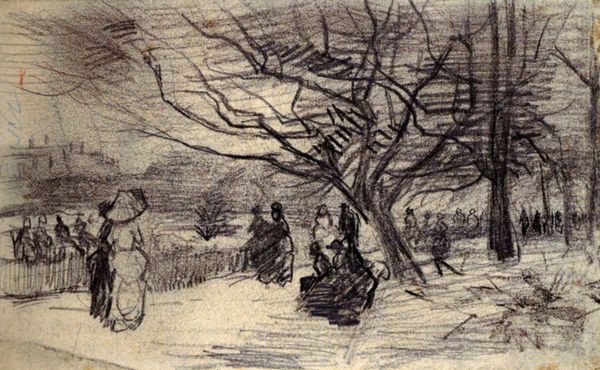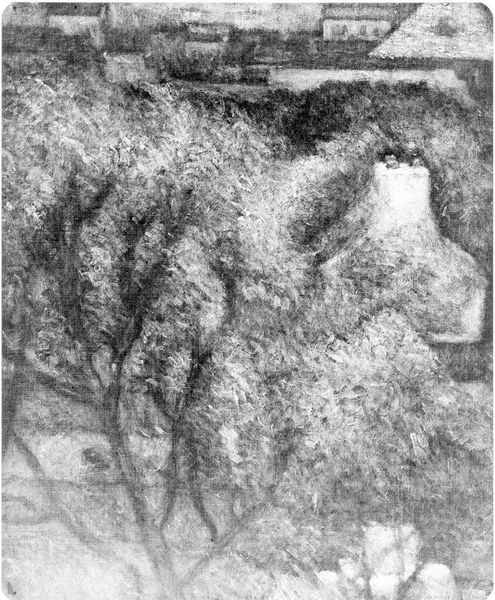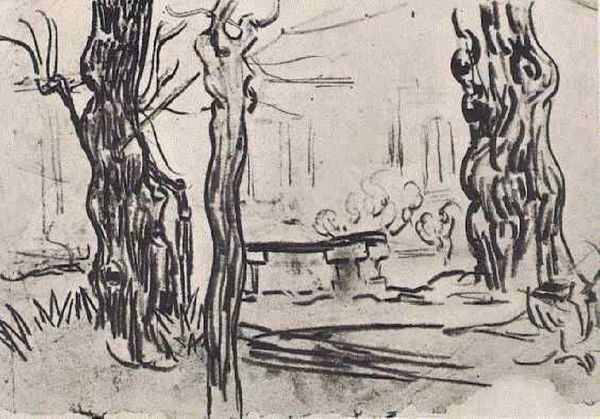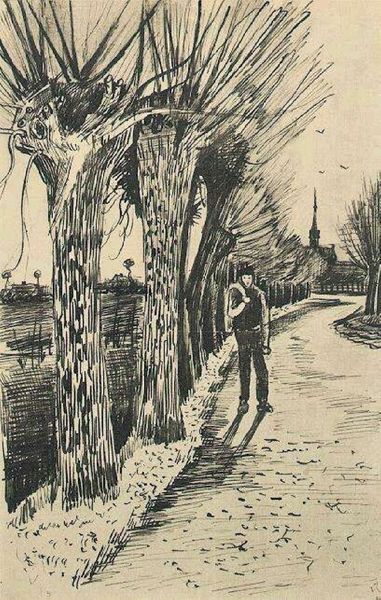
drawing, graphite
#
tree
#
drawing
#
impressionism
#
landscape
#
geometric
#
square
#
graphite
#
cityscape
#
street
#
modernism
Copyright: Public domain
Vincent van Gogh's "A Square in Paris" is a graphite drawing, whose somber tones and blurred outlines create a unique emotional experience. The composition is dominated by horizontal lines that define the square, intersected by the vertical strokes of trees and figures. This juxtaposition creates a grid-like structure. The drawing challenges traditional notions of representation. Van Gogh destabilizes the conventional understanding of space. Here, perspective is flattened, forms are simplified. He uses a semiotic system of signs to convey a sense of urban alienation. The lack of detail transforms the figures into anonymized forms, reflecting the impersonal nature of modern city life. Ultimately, the drawing's formal qualities—its austere palette and emphasis on line and form—function as more than just aesthetic choices. They are critical in shaping our understanding of the cultural discourse of the time. They reflect the artist's interrogation of modernity and its effect on human experience. We can appreciate how Van Gogh was able to capture the essence of a place with such a stark and minimalist technique.
Comments
No comments
Be the first to comment and join the conversation on the ultimate creative platform.
